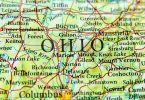During a crisis the situation at hand can spin out of control and it can happen in the blink of an eye. As public relations professionals we understand that we have to have a well thought out plan in place if our organization or client is involved in a media firestorm. What happens, however, to brands that are on the outside looking in? During a disaster or crisis what’s the appropriate response for companies implementing business as usual?
In this week’s PRSA “Friday Five” post — an analysis of the week’s biggest public relations and business news and commentary — we explore the do’s and don’ts of communicating during a national crisis, such as the Boston Marathon bombing. We also take a look at the implications of using social media for announcements and online vulnerability. Finally, we discover more privacy concerns with popular social media sites.
Can Companies Ignore Their Way Out of Social Media Disasters? (Ragan’s PR Daily)
The food website Epicurious has come under fire after sending inappropriate food-related tweets following the Boston marathon bombing. While the tweets were later deleted, some of their 388,000 Twitter followers created quite a firestorm. The company’s crisis management response that followed left a lot to be desired. The company’s first tactic was to respond individually to each follower with the same message in every tweet, “@[INSERT HANDLE] We truly regret that our earlier food tweets seemed insensitive…” The word choice of “seemed” created more stir on the company’s Twitter account before the Epicurious decided to go silent for six days while the storm passed in Boston. For more on the various tweets sent out and further critique of the company’s crisis communication plan read this week’s PR Daily article.
AP Twitter Hacking Exposes Social Media Weakness (Bloomberg Businessweek)
This week, AP learned the PR perils of a hacked Twitter account. The stock market briefly plummeted Tuesday afternoon after the AP’s Twitter account was hacked and an inaccurate tweet was sent out saying that there had been two explosions in the White House and President Barack Obama was injured. It was reported that stocks tumbled about one percent after the bogus tweet went out. AP CEO Dick Costolo has been working to establish the service as a viable source for market news. Regulators just recently authorized the sharing of such news via social media and now the concern becomes the vulnerability to hackers on the AP’s part and susceptibility of multi-trillion dollar financial markets to false information.
How Should Brands Respond to Tragedy on Social Media? (PRNewser)
PRNewser’s Patrick Coffee and his wife Stephanie Coffee examine the media’s response to the last week’s Boston Marathon events from a PR perspective. The public demands timely reports of any major event, as well as confirmation and statements of support from various sources that they follow on social media. For this reason, public entities and the people who manage their accounts must know what to do and how to communicate sensitive information in times of breaking news events. The Coffees offer their own do’s and don’ts. Here is a tip from each list:
What NOT to do:
- Don’t send pitches if the event is ongoing—period. Sending a pitch during a horrific event, even you acknowledge the event within your pitch, is as Patrick Coffee says, “off-putting and, frankly, offensive.” This goes for any sales pitches made through social media as well.
What to do:
- Be aware in the moment. With an ongoing event like the Boston Marathon bombing, remember that everyone’s attention is on the actual event and reports as the event continues to transpire. The public was unaware of any brand promotions and more than likely your content was lost in social media space.
Wall Street Wants Brokers’ Private Facebook Posts on Stock Trades (CNNMoney)
Wall Street continues to wrestle with the power of social media and this week is no exception. After all of the back and forth with regulators regarding the authorization to share information from the financial world via social media, the Financial Industry Regulatory Authority (FINRA), a self-regulator for brokerages, wants to keep tabs on stockbrokers’ social networking postings. This new issue trails a very heated debate regarding employees’ right to privacy within their social media accounts. Regulators had to dive deep into social media policy because of the sensitivity of the financial information kept behind Wall Street’s gated community. Social media is having a large impact on various industries and now regulators at FINRA and the SEC have no choice but to play catch-up and make some difficult decisions.
Social Media: More Likely To Identify Bad Medicines — Or Tarnish Good Ones? (Forbes)
Forbes contributor David Shaywitz discusses how data analysts are proposing to mine data from either medical records or social media to help identify any potential harmful side effects from medications. The concern for those that work in the pharmaceutical industry is that a number of drugs will be taken off of the market too soon because of whatever is being reported via social media. Shaywitz, on the other hand, believes that this type of post-marketing surveillance would enable the pharmaceutical companies to catch rare but important side-effects that would help prevent the development of harmful products, as well as, lengthy and expensive law suits down the line. This could be a win for all stakeholders involved, but there is still many methods and analytics that must be researched to ensure that the data collected is analyzed and reported on accurately.
Nicole Castro is the public relations associate at the Public Relations Society of America.







One thing that caught my eye here is when the post mentions
promotions during an event. It blows my mind that some companies would even consider using a tragedy to make a profit, but then I remembered that we do live in profit driven world. I have gained new respect for those companies
that choose to just stay quiet. Too often it seems that some individuals have lost all sense of moral/ethics when they post to a companies social media site.
They just know that they are paid to post, but come on guys, have a heart. I promise you it will show more profit in the end when the public realizes that you are human.
This is noted later in the blog when it mentions a good
thing to do during a crisis. If you choose to post during a tragic event like the Boston bombing, do so with sincerity. I love how it talks about reminding people that by doing this, it shows that real-life people are still maintaining social media.
When reading another post online at https://medium.com/newmedia/d6a76c68115e
we are reminded of these same hints for maintaining social media. While it may be quiet shameless to try and promote a brand during a crisis, we do not have to completely shut down our online feeds. This can be a time to show
the public that you are more than just a business. This can be a time to show the public that you are human beings that truly do care about the public and it’s welfare.